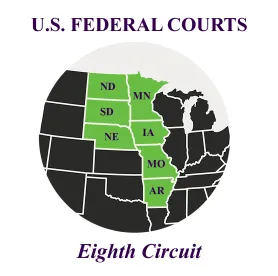In Ford v. TD Ameritrade Holding Corp., 2021 U.S. App. LEXIS 12008 (8th Cir. Apr. 23, 2021), the United States Court of Appeals for the Eighth Circuit reversed a district court’s order certifying a class of customers who had used the defendant’s brokerage services to trade securities and were allegedly injured by defendant’s undisclosed “order routing practices.” The Eighth Circuit determined that plaintiff’s expert’s proposed algorithm could not overcome the complex, trade-by-trade inquiry needed to adjudicate each class member’s economic loss, and so failed to satisfy Federal Rule of Civil Procedure 23(b)(3)’s requirement that common issues of law or fact predominate of issues affecting individual class members. The decision is significant because the Eighth Circuit did not view recent technological advances in simplifying the analysis of voluminous, complex data as necessarily altering the nature of what is an inherently individualized analysis for Rule 23(b)(3) purposes.
Securities brokers have a duty of “best execution,” requiring their “reasonable efforts to maximize the economic benefit to the client in each transaction.” Defendant TD Ameritrade, Inc.’s (“TD Ameritrade”) order routing practices allegedly violated this duty by systematically sending customer orders to trading venues that paid TD Ameritrade the most money, rather than to venues that provided the best economic outcome for its customers. As a result, it allegedly left orders unfilled, or filled orders at a sub-optimal price or in a manner that adversely affected performance after execution. Plaintiff, a customer, claimed that, by this conduct, TD Ameritrade, its parent, and its CEO violated Section 10(b) of the Securities Exchange Act of 1934, 15 U.S.C. § 78j(b), and Securities and Exchange Commission Rule 10b-5, 17 C.F.R. § 240.10b-5.
Plaintiff moved to certify a customer class. The magistrate judge recommended denying the motion on the ground that proving each customer suffered an economic loss would require highly individualized, trade-by-trade inquiries, and so Rule 23(b)(3) was not met. The district judge, however, disagreed. It held that plaintiff’s expert “had developed an algorithm that could solve the predominance problem by making automatic determinations of economic loss for each customer,” and granted the motion.
The Eighth Circuit granted defendants permission to appeal the district court’s class certification order. In reversing the district court, the Eighth Circuit first explained that “best execution” cases differ from typical securities fraud actions because the alleged fraud does not directly affect the security’s trading price. Rather, in a “best execution” case, any economic loss (a liability element) arises, if at all, from the difference between the price at which the customer’s trade was executed and any better price that was then available from an alternative trading source. Thus, to satisfy Rule 23(b)(3)’s predominance, a plaintiff must propose a class-wide method to establish this particular type of economic loss for each class member. The Eighth Circuit noted that the Third Circuit in 2001 had rejected efforts to certify a class in a similar “best execution” case on the ground that the proposed method failed to obviate the need for trade-by-trade economic loss determinations.
Plaintiff argued that technological advances since 2001 have enabled courts to now adjudicate “best execution” claims through the class action devise. Plaintiff pointed out that his expert represented that the proposed algorithm could instantly analyze “hundreds of millions of data points” to assess order-execution quality using TD Ameritrade’s trading history data and published data on market conditions at the time of each trade. Specifically, the proposed algorithm would identify each trade’s “better price” by comparing the trade’s actual price with published data showing the highest price a buyer was willing to pay, and the lowest price a seller was willing to accept, for a particular stock at any given time.
The Eighth Circuit, however, found the algorithm failed to overcome the individualized nature of this inquiry. It noted that both sides’ experts agreed that certain transactions had to be excluded from the algorithm’s analysis to account for those instances when unusual market conditions would have prevented TD Ameritrade from executing a trade other than at an “inferior” price. Although plaintiff’s expert claimed the algorithm could automatically “filter out”’ such instances, the experts disagreed about which transactions should be excluded. The Eighth Circuit determined that, to resolve this issue, the parties’ respective experts would need to “bring their own judgments to bear on a trade-by-trade basis,” ultimately requiring the trier of fact to make highly individualized determinations. It further found that, when placing an order, a customer’s trading strategy can bear on the economic loss question but that the algorithm could not account for the customer’s state-of-mind at the time of the trade. It concluded that “[d]espite advances in technology, individual evidence and inquiry is still required to determine economic loss for each class member.”
In addition to rejecting the proposed algorithm’s ability to deliver as promised, the Eighth Circuit’s opinion also commented on the relationship between advances in computing technology and Rule 23(b)(3)’s requirement that common questions predominate over individualized ones. While acknowledging that “[a]dvanced computing power can expedite [an economic loss] determination,” it observed that such advances do not necessarily “convert[] individual evidence into common evidence” when the underlying inquiry is inherently individualized. Hence, the Eighth Circuit’s opinion is significant as it suggests that the speed and efficiency by which technology allows individual questions to be adjudicated does not bear on the Rule 23(b)(3) inquiry which asks whether common questions “predominate” over individual questions.




 />i
/>i
